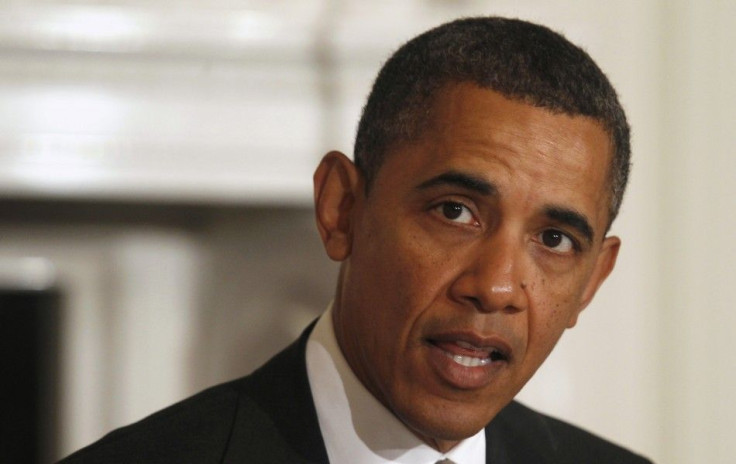Obama Super PAC Reversal: 'We Can't Allow For Two Sets of Rules This Election'

President Barack Obama's reelection campaign directed donors to contribute to the Democratic super political action committee (PAC) Priorities USA on Monday night, in an effort to make stay competitive with his Republican opponents whose supporters have already funneled tens of millions of dollars into the deep-pocketed outside spending groups.
In a message titled We Will Not Play by Two Sets of Rules, Obama campaign manager Jim Messina stressed that while the president opposed the U.S. Supreme Court's 2010 Citizen United decision -- which paved the way for the creation of super PACs -- and would still support a law or constitutional amendment to repeal it, he fears his reelection campaign could be derailed by the huge sums flowing into GOP super PACs from individual and corporate donors.
This cycle, our campaign has to face the reality of the law as it currently stands, Messina wrote. With so much at stake, we can't allow for two sets of rules in this election whereby the Republican nominee is the beneficiary of unlimited spending and Democrats unilaterally disarm.
While Obama's reelection campaign raised a massive $125 million in 2011-- more than double the amount of the $56 million raised by Republican frontrunner Mitt Romney -- the GOP candidates have the president beat when it comes to super PACs. The outside spending groups, which can raise unlimited sums to support or oppose a political candidate, have had a major impact during the Republican primary, spending enormous sums on television advertisements that have arguably had the biggest impact on voters' opinions of the candidates.
The pro-Romney super PAC Restore our Future has raised about $30 million this election cycle from few than 200 contributors, according to Federal Election Commission data. Although the pro-Gingrich super PAC had only raised just over $2 million by Dec. 31, since then the group has received at least $10 million from the casino magnate Sheldon Adelson, according to multiple reports.
In comparison, the Democratic super PAC Priorities USA has raised $4.4 million.
Messina said the Republican super PACs are expected to spend $500 million to defeat President Obama. As a result, the campaign has decided to voice its support for Priorities USA to counter the weight of the GOP Super PAC. Seniors campaign officials -- excluding the president, vice president and first lady -- will attend and speak at Priorities USA events, although they will not be soliciting contributions.
Despite the strategy, Messina emphasized the small-donor grassroots donors that helped propel Obama to the presidency in 2008 will continue to be the campaign's chief asset.
Super PACs haven't opened offices. They haven't hired organizers. They haven't registered voters. They haven't knocked on doors or made the kind of personal contact with voters that we know is the single most effective way to persuade people and turn them out on Election Day, he said.
Almost half of all of the contributions donated directly to Obama's reelection campaign have come from small-donor donations of $200 or less, according to FEC data. Messina reports the campaign is funded by average donations of $55.
Meanwhile, only 9 percent of the Romney's campaign contributions have come from small-dollar donors. The other GOP candidates have received considerably more grassroots support: 49 percent of Gingrich's contributions have come from small donations, while small donors make up 52 percent of U.S. Rep. Ron Paul's fundraising and 32 percent of Rick Santorum's.
© Copyright IBTimes 2024. All rights reserved.





















